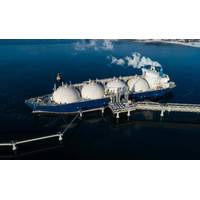Weak Commodity Prices Batter BHP Strategies
Dismal outlook for BHP's commodities.
BHP Billiton's strategy of diversifying across commodities was designed to shield the miner in a volatile sector, but its entire suite of products suffered double-digit price falls in the latest half-year.
Unlike rivals which rely on one or two minerals, the world's biggest miner has 10 major commodities, including its so-called "four pillars of growth" - iron ore, copper, petroleum products sand coal.
All four are currently at multi-year lows and forward price curves charted by Reuters suggest that is unlikely to change soon.
"The beauty of diversification is that when one commodity is down, one of the others picks up the slack," said James Wilson, a mining analyst for Morgans Financial. "That's not happening right now for BHP."
The price BHP received for all 10 of its major commodities in the six months to June has slumped from the same time a year ago, led by a 49 percent fall for oil, 46 percent drop for U.S. natural gas and 45 percent for iron ore.
The declines underscore BHP's focus on squeezing value from its operations and cutting costs, while non-core assets such as manganese, aluminium and other unloved commodities have been spun off into a separate company, South 32.
"The key to BHP's strategy is being low in the cost curve and making sure that their costs are falling at a greater rate than those industry-wide, so the pressure from lower commodity prices is worse for the competition," said Rohan Walsh, a fund Manager at Karara Capital, which owns BHP shares.
RANGE OF PRODUCTS
Unlike rival Rio Tinto, which relies on iron ore for 80 percent of its profit and has no petroleum division, only about half of BHP's revenue is reliant on the steelmaking commodity.
Not that oil is proving a salve.
Fiscal 2015 financial results released on Aug. 25 will include more than $2 billion in impairments on BHP's U.S. shale operations - the third write down in three years. Rig terminations will mean further losses to underlying attributable profit of up to $100 million.
Only at an oil price of $60 per barrel and a gas price of $3.00 per million British thermal units (mbtu) can BHP's onshore operations be cash flow positive in the 2016 financial year, according to the company.
Henry Hub gas <GT-HH-IDX> stood at $2.88 per mbtu on Wednesday, while oil hovered around $50.16 per barrel.
Copper is also problematic.
After a 14 percent drop in selling prices in fiscal 2015, BHP on Wednesday disclosed it will book up to $650 million in impairments, while another $382 million will be cut from earnings before interest and tax due to the repricing of 350,000 tonnes of copper sold the previous year on a provisional basis.
Copper is selling for around $2.47 a pound, not far off a six-year low, while BHP's output will also fall next year due to lower grades at its Escondida mine in Chile.
Iron ore is still the flagship and BHP is showing no signs of rethinking a gameplan to take annual production close to 300 million tonnes annually from 254 million in fiscal 2015.
The extra cargoes and a drive to further lower costs will help offset a decline in the iron ore price, which Capital Economics analyst Caroline Bain forecasts will hit $45 a tonne by December. BHP realised an average price of $61 a tonne in fiscal 2015, down from $103 a year earlier.
BHP beefed up its metallurgical coal output by 13 percent in hopes of mitigating a 20 percent fall in price, only slightly less painful than the 22 percent price fall in thermal coal.
A potential "fifth" pillar, potash, will meet a world awash in the fertiliser if BHP enters the market by developing its Jansen mine in Canada.
BHP chief executive Andrew Mackenzie pointed in the company's half-year production report to lower costs and significant cuts in capital spending.
"We remain confident that our focus on best-in-class performance together with our unrivalled asset quality, optimal diversification and continued investment in high-return projects, will create long-term value through the cycle and deliver superior returns to our shareholders," he said.
By James Regan






